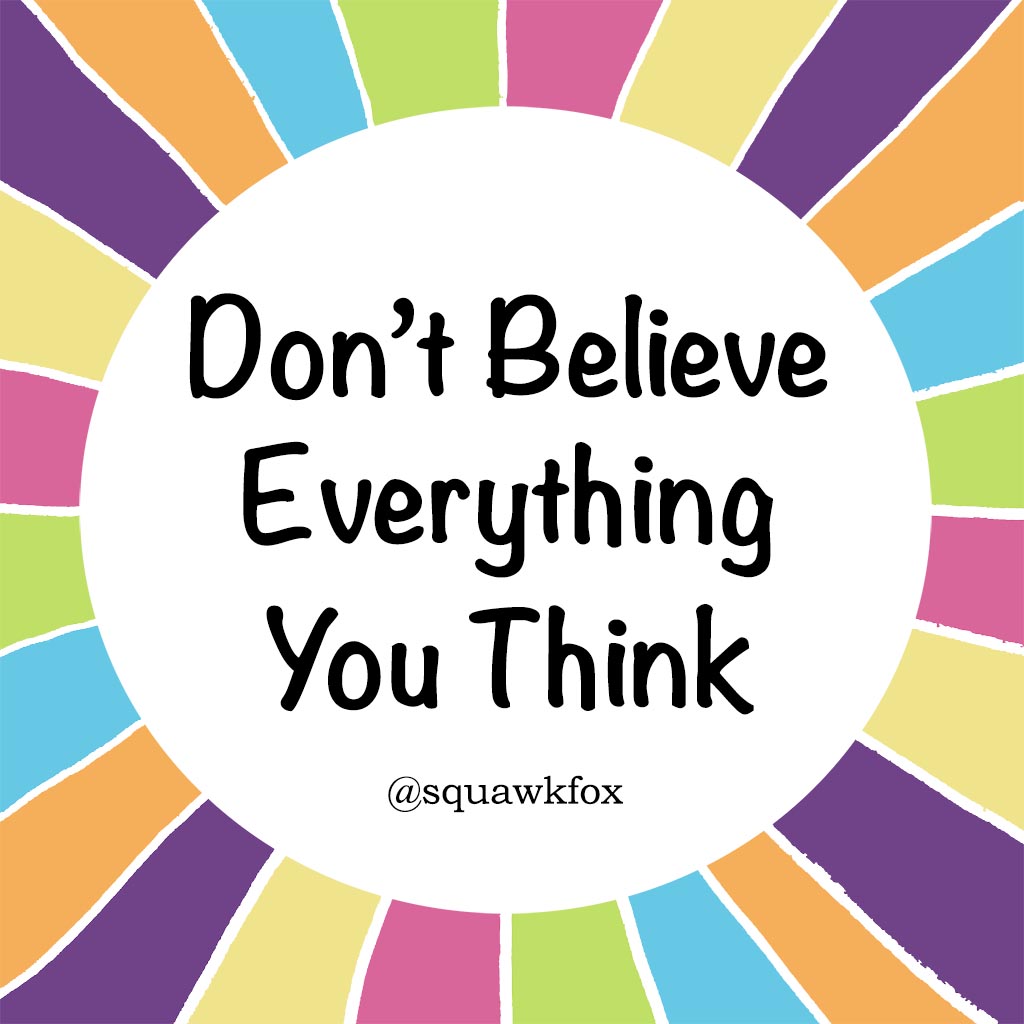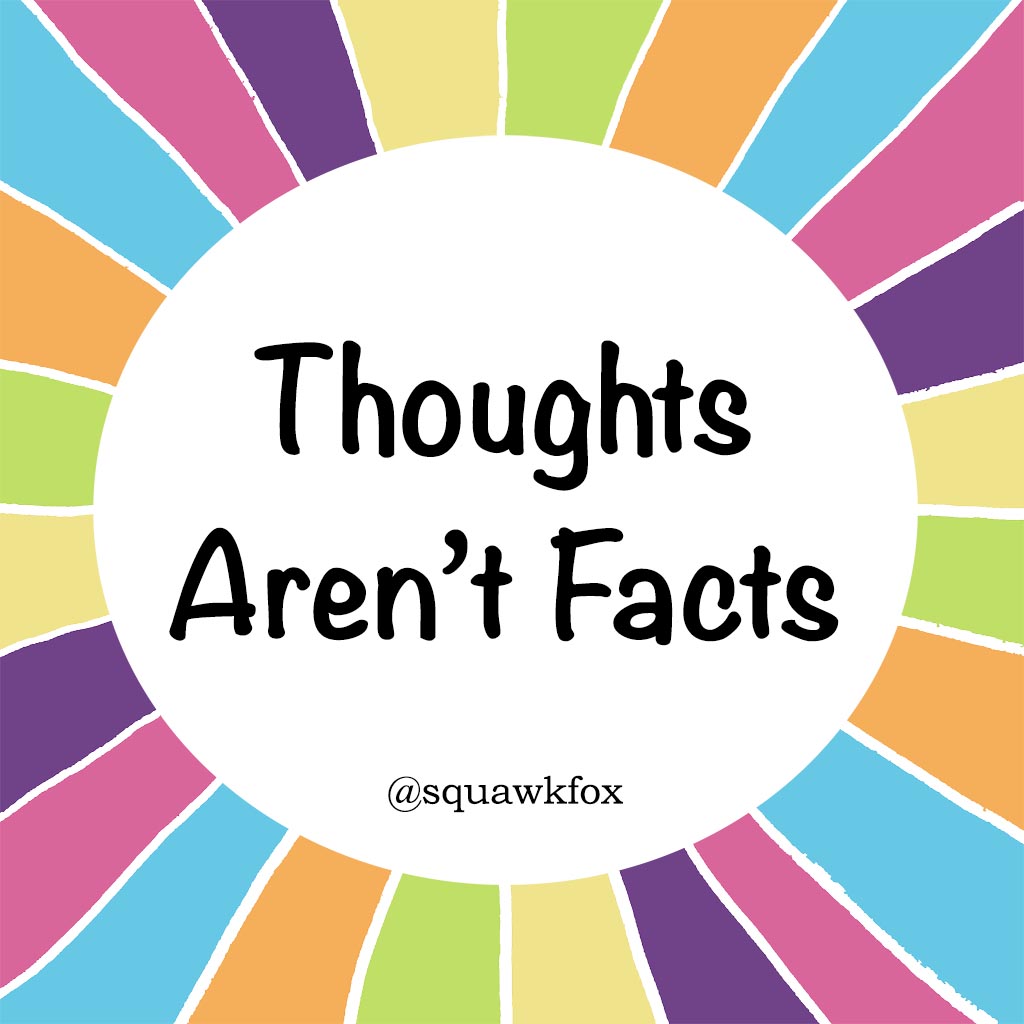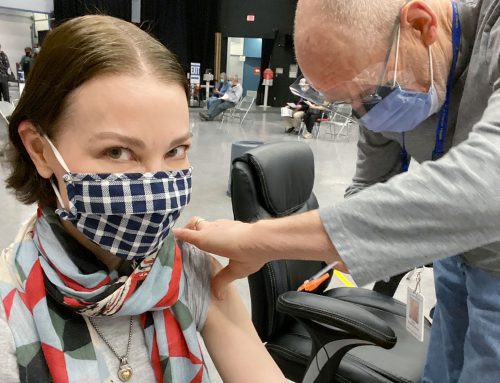This is a crazy and difficult time for everyone. The daily onslaught of COVID-19 news, growing health concerns, changing lifestyles, and new restrictions can cause uncertainty and anxiety. This ‘new normal’ ain’t easy. I get it.
As a breast cancer survivor I’ve been living my ‘new normal’ — an abundance of life changes with unimaginable uncertainty and anxiety — since I was diagnosed a year ago. It’s a lot.
It’s especially a lot for those who have never had significant turmoil thrust upon them. But while financial pressures and quarantines are super challenging, I’ve noticed that my cancer friends are pretty chill about the whole pandemic thing ripping across the planet.
Why are cancer survivors so mentally tough?
Well, we know how to deal with adversity because we have no choice. We learn how to cope in uncertain times because we have no choice. Resilience is really the only option. Practicing mindfulness is key.
If your choice is between amputation with a side of chemotherapy and radiation OR death, you pick your poison. And that poison is often accepting brutal cancer treatments to live, along with isolation, strict sanitation routines, and acknowledging your own mortality.
So yeah — in the face of a global pandemic, cancer survivors are pretty much taking it all in stride.
I want you to take it in stride too.
Over the last year I’ve learned many incredible lessons in resilience, mindfulness, and mental toughness from my friends with breast cancer. I’ll share these insights with you.
But first, what’s Mindfulness?

Mindfulness is a calm and chill mental state. If you’ve ever felt stressed or panicky, being more mindful can help you quiet your mind and relax your body. Mindfulness can be achieved by focusing your awareness on the present moment, while acknowledging your feelings, thoughts, and physical sensations. Mindfulness is often used as a therapeutic technique to bring a greater state of consciousness or being more aware of something.
1. You’re not alone. Find your tribe.
To end the COVID-19 pandemic we all need to live in isolation, together. It’s a weird dichotomy, I know. But while sheltering in place, please know you’re not alone. You may feel like you’re flying solo in solitary confinement, but you’re not.
When I was first diagnosed, I didn’t know a single woman with breast cancer. Doctors kept saying I was “young” to get the disease, so I felt terribly alone. Marie changed that. I met her through a friend of a friend — women have incredible support networks BTW, and we use them!
Marie was gorgeous. With long eyelashes and a smart pixie, she talked me off a ledge. “You can do this,” she told me again and again. “You can!” and “You must!”
She also hooked me up with a local cancer support group, and this made all the difference in my life.
Mindfulness Actions: Whether you’re struggling with unemployment, parenting, finances, getting food into the house, or caring for someone with illness, it’s important you find people in your tribe. Search for local groups on Facebook, Instagram, LinkedIn, and message your friends to check in. By asking and searching, I’ve found help with parenting young kids through online educators, getting leads on work, finding creative ways to get food to others, learning new skills via Zoom webinars, and staying sane.
Don’t be afraid to ask for help. You’re not alone.
2. One day at a time.
You don’t need to know how to survive weeks – even months – in quarantine.
You only need to survive today. Focus on today. One day at a time.
I learned this essential lesson from my friend, Aislinn. Aislinn was the first woman I met with triple negative breast cancer (TNBC) — it’s the type I was diagnosed with.
The stuff written about TNBC is scary. It’s often considered the most aggressive type of breast cancer, it has a quick recurrence rate, and the fewest treatment options. Getting a diagnosis of TNBC is anxiety-inducing because it gives you very little time to plan and react. TNBC is terrible news for an A-Type personality who likes to plan five years in advance with spreadsheets. Being flexible to rapid change would have to be my new normal.
When I met Aislinn I had just started chemo, I was stressed about losing my hair, doing genetic tests for the BRCA gene mutation, deciding on radiation, getting sleep, parenting, and dying. I was trying to solve all of the problems, today. I was trying to chart out all the scenarios, troubleshoot the side effects — even if they might not happen – and complete months of treatment in my head. I wanted all the answers, now. Ok, I wanted all the answers, yesterday. If the uncertainty didn’t kill me, I was afraid the cancer might.
Mindfulness requires patience
Aislinn knew something I didn’t. Cancer (kind of like the coronavirus) is not something that can be planned out and conquered in one sitting. The disease requires patience. If you don’t have patience, cancer is not the disease for you.
Since Aislinn had completed treatment and knew better, she said I should focus on small steps — getting through the next round of chemo, and forgetting about the genetic test four months from now. Then focussing on doing small tasks to recover from chemo. Repeat.
Looking too far ahead was far too overwhelming and anxiety-inducing. Things could change fast. The bad things might not happen.
We don’t know how long it will take to flatten the COVID-19 curve, and we don’t know when there will be an immunization for the virus. We can take small steps. Small daily steps can get you to the bigger goal.
Mindfulness Actions: Create a daily schedule and fill it with new and interesting things to do. Cooking classes on YouTube, financial podcasts, virtual events, streaming documentaries on Netflix, listening to a book on Audible, or taking a free online course on Lynda through your public library. Fill your day with just enough activities to keep you busy, your mind occupied, and your soul feeling fulfilled.
One day at a time, people. Tomorrow will be today, soon enough.
3. Focus on the things you can control.
There’s an absolutely brutal truth in life that many people don’t want to accept: You have little to no control over the many things that happen to you.
This realization hit me HARD after my cancer diagnosis. As a high-performance athlete, organic-food-eater, and clean-life-liver, getting cancer was NOT on my radar. Who me? Nope! I thought I had nicely mitigated all the cancer risks by living virtuously. Besides, no one in my family had cancer — so I was safe!
I was wrong.
You can’t prevent all of the bad things from happening to you
But you sure can worry about them anyway. You can stress about deadly diseases, stay occupied by worries, and waste your energy fretting over possible future negatives. Freaking out about the things you can’t control doesn’t help you, it hinders you.
Nicole taught me this. During my cancer treatment she would message to “check in” and I’d immediately go off the “scary things cliff”. Being a breast cancer survivor too, Nicole knew the cliff well.
But instead of peering over the edge with me, Nicole got me to reframe my thought process and “flip the script”. Instead of focussing on what I could not control, Nicole wanted me to see the things I could!

Start with a list of things that matter to you. Then decide what you can do about it, or not!
Things you can control often fit in these mindfulness categories:
- Yourself
- Your attitude
- Your actions
What could I control during cancer treatment? My actions, my attitude, myself. I couldn’t run a marathon but I could go for a slow walk outside. I couldn’t write a book but I could read to my daughter, and so on.
Mindfulness Actions: I have no clue how the global pandemic will play out. No one does. So focus on the things you can control and let everything else go. This is key to being mindful with yourself, your attitude, and your actions.
4. Love your people today.
Love your people today. Love your friends, your spouse, your kids, your family. Message them. Tell them you love them. That’s it, that’s the point of life.
5. Be present for today. Don’t look back.
When your current life is smashed into oblivion it’s natural to look back and grieve the person and the life you once knew. Illness, job loss, financial loss, health loss, loss of a loved one, loss and more loss. The grieving process is painful and real.
I look at old photos of myself before cancer and I don’t know that girl. I don’t know her body, her mind, her attitude towards life. She’s gone.
I showed my friend Meghan some old Instagram photos and she witnessed my intense grief. She knows it well. She’s also a breast cancer survivor and she dropped this wisdom bomb on me like no other.
“Don’t look back. It will eat you alive,” she said. “Look forward, that’s the direction you’re going.”
Mindfulness Actions: Go ahead and grieve. Stand in the ashes of the person you once were. But know that challenges, adversity, and resilience make you better, and stronger.
While we are social distancing due to COVID-19, it’s easy to focus on what we’ve lost. What if you flipped the script, changed your language so you can change your perspective? Go ahead and reframe your thoughts by focussing on the things you’ve gained during the pandemic. Make a listy list. I’m cherishing the extra time I get to spend with my daughter Chloe now that she’s home from school.
6. Feeling triggered? Get a reality facts checklist.
Many of us have a ‘scary things cliff’. If you climb up and look over the ledge you’ll see the thing you fear most. Keep looking and it gets closer and feels real. Lean in and you’ll be consumed by anxiety and end up jumping. It’s awful.

Thinking about fearful things doesn’t make them your reality. But it sure can feel real if you’re prone to catastrophizing.
Catastrophizing is the annoying ability of taking an irrational thought and believing it’s far worse than it really is. If you’re anything like me, you’re a pro at catastrophizing. Heck, I can take any future or present situation and flip it into an all consuming irrational thought in seconds. I’d add this skill set to my LinkedIn, but no one hires me for my mental health triggers. People generally prefer me for my humour. 🙂
You know who often deals with mental health issues, triggers, and catastrophizing at varying levels? Cancer survivors. You know what hangs over our cliff? Cancer.
My friend Jamie gets me. I message her whenever I need a reality check. She knows I have her back too. She’s been through a lot with breast cancer and understands ‘getting triggered’ all too well.
To counter the catastrophic trigger we’ve each created a checklist, a ‘Get Real with Reality Checklist’ that outlines everything we’ve done to beat our cancer.
List the facts to counter the catastrophe
Listing out the facts can help you counter the catastrophe and can prevent you from experiencing a funnel of fear or going off a ‘scary things cliff’. You can counter stress, prevent anxiety, and build resiliency by reviewing the facts to keep it real. This takes practice.
Here’s my factual list:
- Clean surgery, node negative
- 7 rounds of AC-T chemo
- 30 sessions of radiation
- Zometa
You may not understand the stuff on my list, and that’s OK. The point of creating a facts list is to identify what resonates with YOU and counters YOUR triggers.
Mindfulness Actions: What’s buggin’ you? Are you worried about getting the coronavirus? Are you concerned about family? Is your job or your finances causing anxiety? Grab a pen and notepad, and start listing all the thoughts triggering your fears. Then counter each thought with ways to solve the problem. For example: Staying home can help prevent COVID-19. Calling your financial institution and asking for interest relief is an actionable step, too. Make a solid list and read it whenever something triggers you. Your irrational thoughts will eventually be switched to problem-solving actions. Go you!
7. Find the funny.
There’s nothing funny about quarantine, pandemics, coronavirus, money, or cancer. Right?
Wrong.
When I first met Shelley I wasn’t feeling “the funny”. At all. There’s nothing humorous about cancer. Shelley changed that.
As a breast cancer survivor, Shelley found the funny.
When she asked me my cancer story, she didn’t keep the tone sombre or serious.
Instead, Shelley channeled Arnold Schwarzenegger from the movie, Kindergarten Cop. With a recognizable Arnold impersonation… she said:
“Tell me about your tumor!”
Face plant. She cracked me, and I lost it.
Mindfulness Actions: Countless people are making the best of the global pandemic. Connect with others or just peep into their quarantined lives and see how funny things are everywhere. We’re all in this together, and laughing feels better when we smile together. This too will pass.
You are loved. Stay mindful. Stay home. And stay safe.
Love love love,
Kerry



Beautiful! Thank you. Very inspiring 🙂
So wonderful to hear your positive attitude! I believe it’s a recipe for success.
I am forwarding this post on to my scared friend, who just today drove her young adult daughter to Kelowna for her first session of chemo for stage 3 melanoma. I hope she will share it with her daughter. This poor woman lost her 3 year old granddaughter a couple of years ago due to a different cancer. She needs all the positive vibes she can get right now. Thanks so much for putting yourself out there and giving love, inspiration and hope to all who can really use it for whatever situation they find themselves in.
I really like the way you did this post, Kerry. It must have been a lot of work. I appreciate so much how you have kept your sense of humour even in such difficult times. It’s wonderful to see you have so much support from your friends and that you acknowledge them in your post. Peer support is an essential part of the journey, isn’t it? You strike a nice balance between your personal reflections and suggestions for readers to implement in their daily lives. There’s so much here that I relate to as a SCAD survivor. I think your writing will encourage a lot of people facing many types of challenges so keep it coming!
Wow, did I ever need to read this today. Thank you for sharing what you’ve learned. I wish you all the best <3
You make a lot of good points here. We really do need to learn to focus on what we can control and try to forget the rest. And every day is the perfect day to love our people and make sure to laugh. Great advice!
How can I support a neighbour who just went through a double mastectomy and chemo for Triple Negative Breast Cancer during COVID? I’d like to offer support and food and I’d love to share words or articles that she might like. Any advice. Thank you for writing this – you are an inspiration!